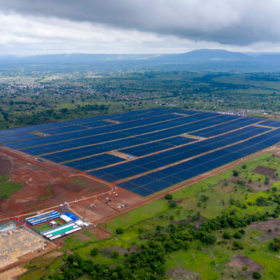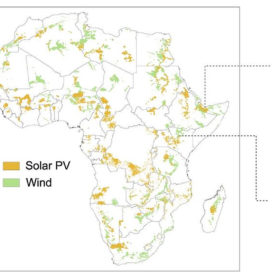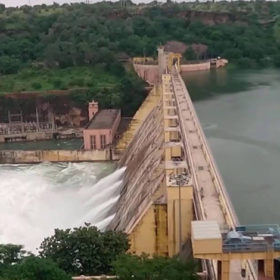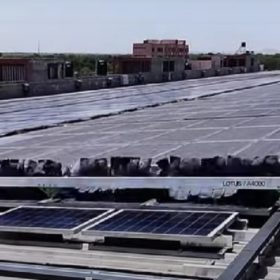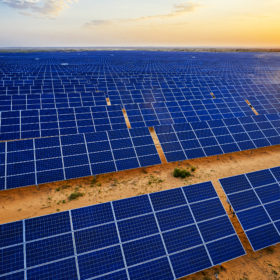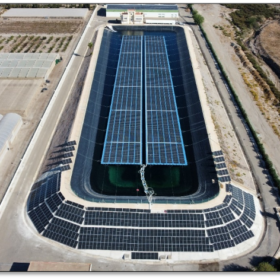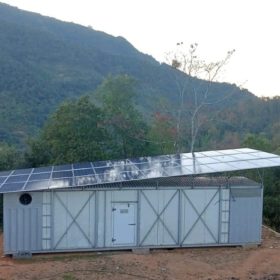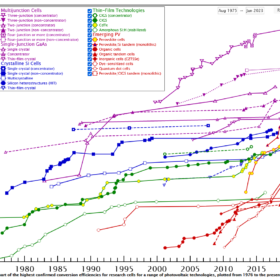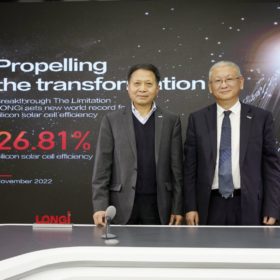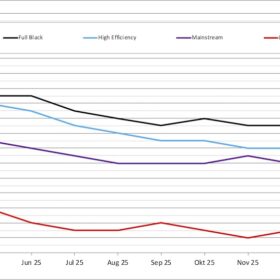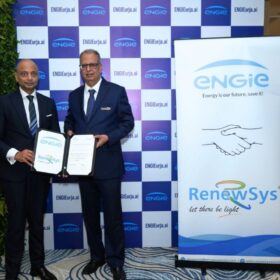Jakson Green wins repeat order for solar-plus-storage project in West Africa
Jakson Green has secured the order to build 20 MWp solar with 4.8 MWh storage after completing the 50 MWp capacity of the project earlier.
“Commercial rooftop solar is growing by leaps and bounds”
Panasonic Life Solutions India provides “Made-in-India” solar modules and high-quality solar EPC solutions for commercial and industrial consumers. Targeting an increased share of the Indian rooftop PV market, it plans to include solar-plus-storage solutions for industrial consumers and residential solar kits in its offerings. Amit Barve, business unit head of solar at Panasonic Life Solutions India, speaks to pv magazine about the Indian market and their plans for future growth.
IRENA releases all-Africa dataset of locations for solar, wind
The International Renewable Energy Agency (IRENA) has published a dataset with 10,905 sites for PV deployment across Africa, with an estimated total capacity of 4.9 TW.
Larsen & Toubro secures pumped storage project from Greenko
The Indian multinational EPC provider has secured the civil and hydromechanical works for a 10 GWh pumped storage project from renewables developer Greenko. The project is coming up in Madhya Pradesh.
Fully autonomous solar panel cleaning robot from Greenleap Robotics
The Lotus A4000 cleaning robot, built with automotive-grade components, is a reliable and hassle-free solution to daily clean and maintain solar plants operating in harsh and arid regions.
Assam seeks consultant for 1 GW solar project
Assam Power Distribution Co. Ltd (APDCL) has opened bids from consultants to prepare a detailed project report for a 1 GW solar power plant it is developing in Assam.
Floating PV for water pumping, desalination
An irrigation community has built a 786 kW floating solar array on a small water reservoir in Murcia, Spain. The facility will provide power for a solar water pumping system, a desalination unit, and the community itself.
Transition VC launches INR 400 crore fund for energy startups
Transition VC will invest seed capital in 40 startups across sectors such as e-mobility, green hydrogen, energy storage, net-zero buildings and climate-tech over the next three years.
NREL updates interactive chart of solar cell efficiency
The US National Renewable Energy Laboratory (NREL) has released a new, interactive version of its research cell efficiency chart for a range of PV technologies.
Longi claims world’s highest efficiency for silicon solar cells
Longi said it has achieved a 26.81% efficiency rating for an unspecified heterojunction solar cell, as confirmed by Germany’s Institute for Solar Energy Research Hamelin (ISFH).
